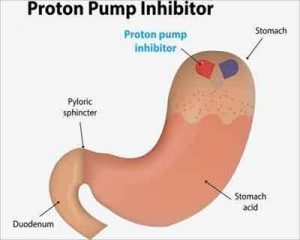- Home
- Editorial
- News
- Practice Guidelines
- Anesthesiology Guidelines
- Cancer Guidelines
- Cardiac Sciences Guidelines
- Critical Care Guidelines
- Dentistry Guidelines
- Dermatology Guidelines
- Diabetes and Endo Guidelines
- Diagnostics Guidelines
- ENT Guidelines
- Featured Practice Guidelines
- Gastroenterology Guidelines
- Geriatrics Guidelines
- Medicine Guidelines
- Nephrology Guidelines
- Neurosciences Guidelines
- Obs and Gynae Guidelines
- Ophthalmology Guidelines
- Orthopaedics Guidelines
- Paediatrics Guidelines
- Psychiatry Guidelines
- Pulmonology Guidelines
- Radiology Guidelines
- Surgery Guidelines
- Urology Guidelines
Proton Pump inhibitors increase risk for hip fracture: Meta-analysis

A new study published in the journal Rheumatology International has reported that the use of proton pump inhibitors (PPIs) may increase the risk for hip fracture by 20%. Moreover, higher doses and longer duration were associated with greater risk.
Hussain and associates performed a systematic review and meta-analysis which included seventeen studies to quantify the risk of hip fracture associated with PPI use. The investigators searched the PubMed® and Cochrane Central databases from inception to January 2018.
Read Also: PPIs combined with oral anticoagulants reduce risk of GI bleeding : JAMA
The primary outcome of this study was to assess the risk of hip fracture among PPI user. Secondary outcomes include subgroup analysis based on study design, study quality, duration of PPI use, calcium intake, and geographical region. Sensitivity analysis was also performed.
The authors found that the use of PPIs was associated with a significantly higher risk for hip fracture vs nonuse and the risk increased with increasing dose and duration of PPIs. However, no association was found between other gastric medications or histamine-2 receptor antagonists and hip fracture. This meta-analysis suggested that PPI user have a 26% increased risk of hip fracture as compared to non-PPI user.
Read Also: Study confirms PPIs increase risk of Iron deficiency
According to the authors, the findings suggest that clinicians should be cautious about long-term PPI therapy in patients at higher risk for hip fracture.
Proton-pump inhibitors (PPIs) are a group of drugs whose main action is a pronounced and long-lasting reduction of stomach acid production. Proton pump inhibitors are used to relieve symptoms of acid reflux, or gastroesophageal reflux disease (GERD), treat a duodenal or stomach ulcer and treat damage to the lower oesophagus caused by acid reflux.

Disclaimer: This site is primarily intended for healthcare professionals. Any content/information on this website does not replace the advice of medical and/or health professionals and should not be construed as medical/diagnostic advice/endorsement or prescription. Use of this site is subject to our terms of use, privacy policy, advertisement policy. © 2020 Minerva Medical Treatment Pvt Ltd